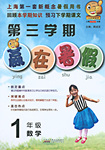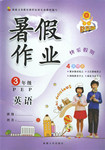题目内容
Forever Young
It's Girls Night Out: Mom Edition, and I'm a player in a whole new game. It occurs to me that I really don't know these 1 women. We've been circling 2 for about three years, ever since our kids started 3 .We'd bump into each other in the parking 4 ,at Valentine's Day parties, and later as one or the other shyly 5 we all sign our kids up for softball, gymnastics or dance. Who knows 6 the five of us clumped together more than 7 of us clumped with other mothers. I suppose it happens 8 ,friendship circles spiraling in and around and about and anew.
This is the 9 time we've gathered without the kids, and I am having a 10 time saying “Janice”, as opposed to “Zoe's mom” or “Susan”, 11 “Kaitlin's mom”, and so I have decided, for tonight, not to 12 any names at all.
The 13 has already taken our drink order. I can't believe nobody 14 beer. Nope, this is a Diet Coke and iced tea crowd. In the back of my mind I'm 15 if I'm going to be the naughty 16 who corrupts this group.
There is so much 17 to take care of when you are just getting to 18 people as people. One of the things we are doing is 19 dates, the years that each of us 20 from this or that. I see where this is going.
1.A.five B.three C.Four D.two
2.A.each other B.one another C.all of us D.some of us
3.A.primary school B.university C.high school D.preschool
|
5.A.said B.suggested C.informed D.found
6.A.what B.that C.how D.why
7.A.some B.none C.any D.all
8.A.all the time B.all of a sudden C.at the same time D.once and for all
9.A.last B.first C.Usual D.only
10.A.spare B.good C.difficult D.pleasant
11.A.instead of B.as well as C.in case of D.in the name of
12.A.call B.use C.forget D.tell
13.A.kid B.mother C.Friend D.waitress
14.A.brought B.liked C.ordered D.drank
15.A.wondering B.fearing C.Speaking D.asking
16.A.girl B.mother C.One D.kid
17.A.trouble B.business C.time D.food
18.A.regard B.name C.Find D.know
19.A.comparing B.making C.Deciding D.discussing
20.A.came B.changed C.graduated D.got
C B D A B D C A B C A B D C A C B D A C

 第三学期赢在暑假系列答案
第三学期赢在暑假系列答案 学练快车道快乐假期暑假作业新疆人民出版社系列答案
学练快车道快乐假期暑假作业新疆人民出版社系列答案